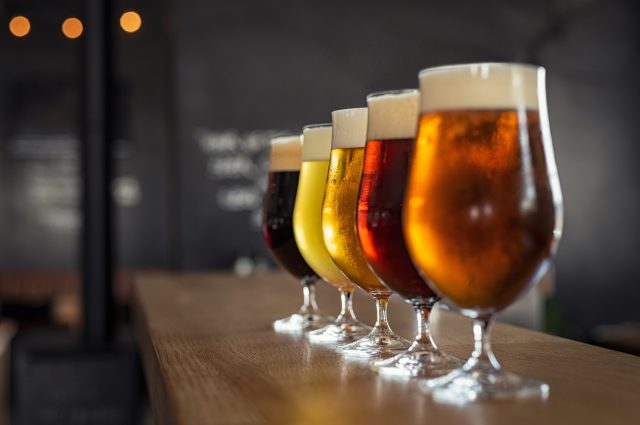This website uses cookies so that we can provide you with the best user experience possible. Cookie information is stored in your browser and performs functions such as recognising you when you return to our website and helping our team to understand which sections of the website you find most interesting and useful.
From shrinkflation to ‘drinkflation’: Alcohol reduced to ensure prices remain static
Brewers have reduced the alcohol by volume (ABV) on their core brands to avoid taxation and keep the price of beer static amid the rising cost of production.

The news, dubbed ‘drinkflation’ and which follows an investigation by the Mail on Sunday, discovered that various beers including Heineken’s brand Foster’s, Greene King’s Old Speckled Hen, and Shepherd Neame’s Bishop Finger and Spitfire, have all seen reductions in their ABV recently, in order to save on the cost of alcohol duty, and subsequently offset the cost of rising prices of production.
The study found Foster’s had reduced from 4 to 3.7% ABV, saving 3p per bottle on duty, Old Speckled Hen had reduced from 5 to 4.8%, saving 2p, Bishops Finger from 5.4% to 5.2%, saving 2p, and Spitfire was reduced from 4.5% to 4.2%, saving 3p per bottle.
Research fellow at the University of Sheffield, Colin Angus, said if every brewery cut alcohol by just 0.3 per cent, they would collectively save around £250 million on duty payments to the Government.
Mounting prices
The chief executive of the British Beer and Pub Association, Emma McClarkin said that brewers had been facing “mounting price increases”, and as a result “as far as possible” they had “absorbed costs to avoid customers paying over the odds”.
According to the report, brewers are considering doing the same on other brands as well. Additionally, changes to tax policy in August, which mean duty charged on the majority of drinks will be linked to ABV strength, could also further exacerbate the situation, it warned.
The news comes as the rising costs to brewers could force prices up even further. In a recent report from Rabobank the challenges of taking additional pricing to cover costs is addressed, with advice being given for how the industry needs to respond.
In the Beer Quarterly Q1 2023 report, Rabobank’s senior analyst – beverages, Francois Sonneville, said: “While brewers faced dramatic increases in input costs last year, our estimates suggest that contracts and other mechanisms allowed them to avoid the worst of the volatility in spot prices.”
Additional costs
Sonneville added: “Looking forward, even though spot prices for some items are declining, key items remain well above 2021 levels, and brewers will face additional cost of goods sold (COGS) increases, as contracts and hedges have rolled off. Furthermore, we believe that wage inflation and rising energy prices in the coming year will create additional headwinds.”
Rabobank described how, for some brewers, the full impact of escalating commodity prices in the last two years was limited by effective hedging strategies, but warned that although hedges helped elude the impact of extreme volatility and controlled costs in the near term, as some hedges roll off and pricing contracts are renegotiated, the reality of rising costs cannot be postponed indefinitely.
Closures
It also comes as the number of craft breweries going bust jumped to catastrophic heights in 2022, according to sources detailing the challenges.
According to Steve Dunkley, head brewer at Beer Nouveau who has been keeping a comprehensive list of brewery closures, over 80 breweries went bust in the UK in 2022, making last year the highest yearly total on record.
With the number of breweries in the UK having fallen, the issues are being outlined as a myriad of rising costs and weakening consumer demand.
Dunkley told db: “The problem with a lot of lists is that they pick a singular source of information, such as Companies House, or insolvency applications. A lot of breweries aren’t registered with Companies House for instance. A lot don’t go through administration or insolvency. This list pulls from multiple places including direct from brewery’s social media posts.”
Speaking to the drinks business, the Society of Independent Brewers (SIBA) head of communications, Neil Walker, said: “Independent breweries have seen raw material, utility and energy costs rise across the board and without the economies of scale of the global companies many businesses have found it incredibly difficult to remain profitable, for many breweries the combined financial burden has proved too much and we have seen a number of closures over the last twelve months.”

